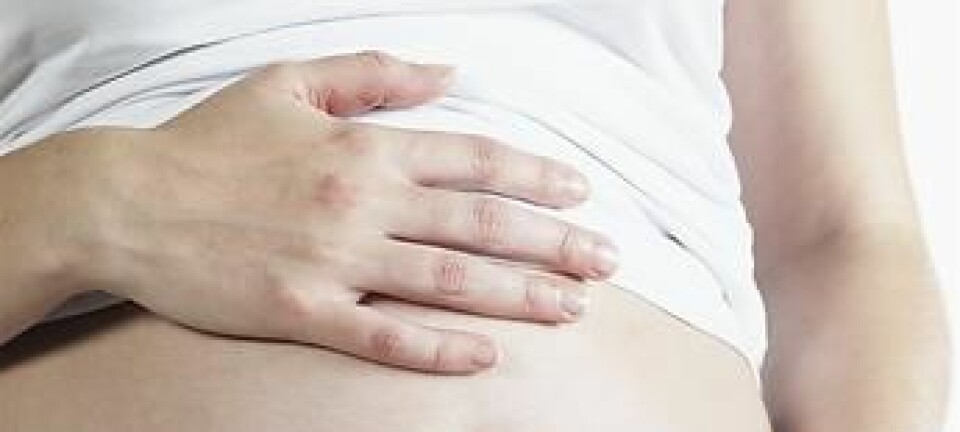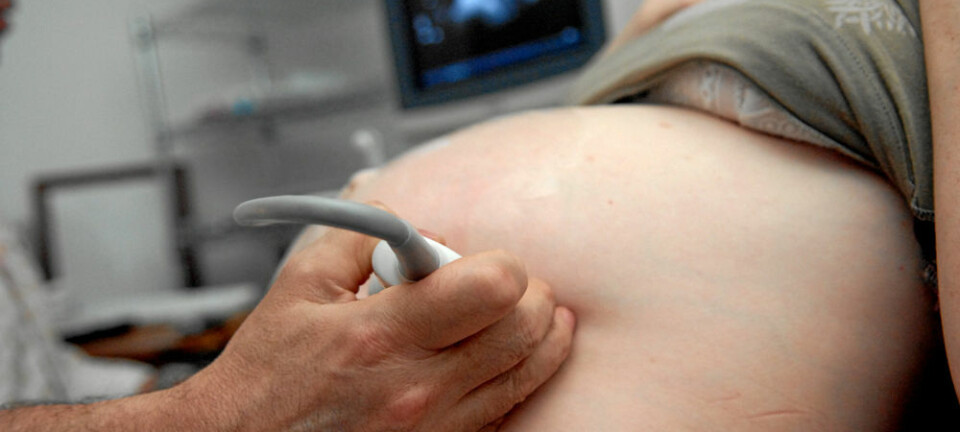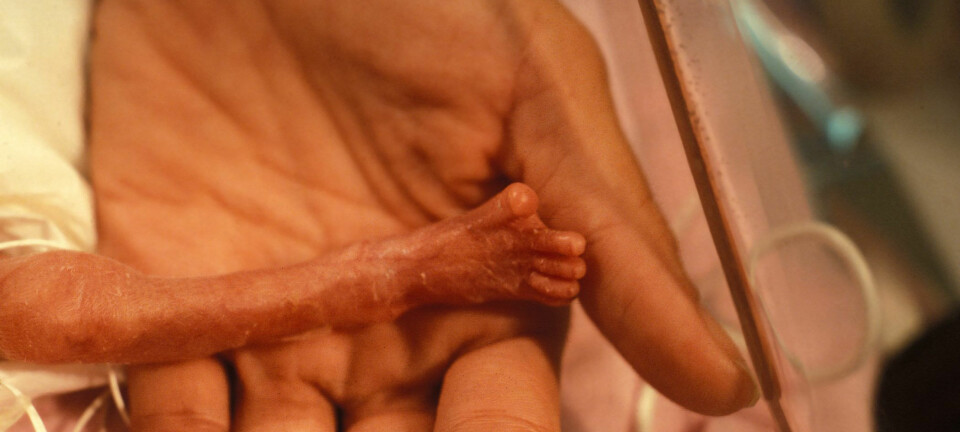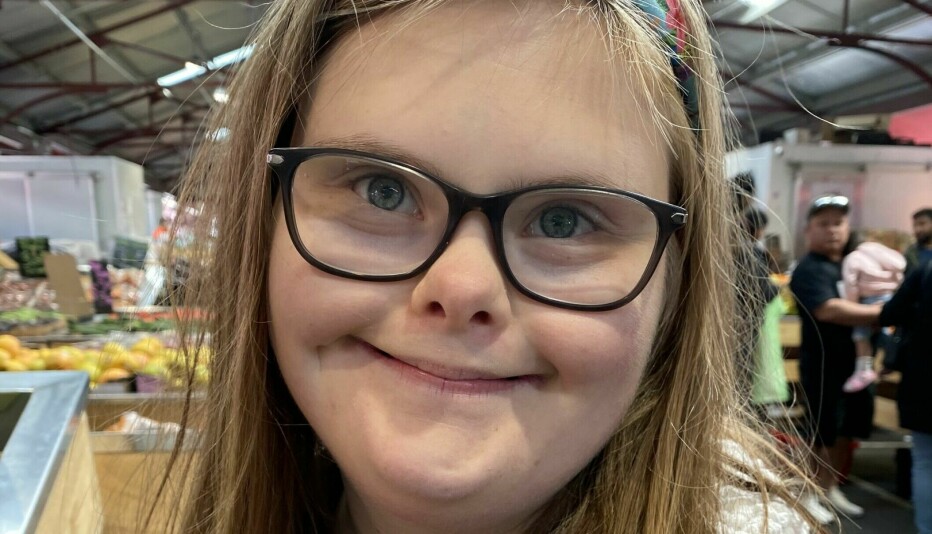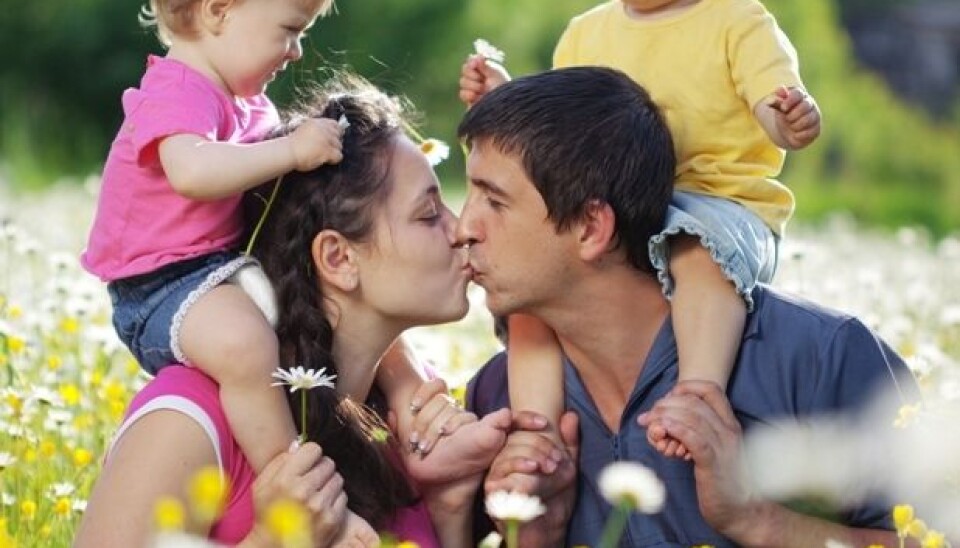
Two-year limit for parental bliss
Our happiness and well-being increase when we have children – but only for a while. After two years, most of us are back at the same level of happiness we had before the kids came along.
Denne artikkelen er over ti år gammel og kan inneholde utdatert informasjon.
Psychologists Gunvor Marie Dyrdal and Richard E. Lucas at the University of Oslo have studied how children affect the well-being of first-time parents.
“We wanted to find out whether children really do make us happier, and whether parents have a similar response to having children,” says Dyrdal.
“It's easy to assume that having children is joyful. A couple struggling with their relationship might think children could solve their problems – it gives them a joint project, and a potential to improve their lives and their relationship.”
Positive to pregnancy and childbirth
The study included responses from 1,967 women and 1,705 men, taken from a large German population survey running since 1984. The participants were followed over a number of years, on average from four years prior to childbirth to 7,5 years after. Each year they were asked how satisfied they were with life, on a scale from one to ten.
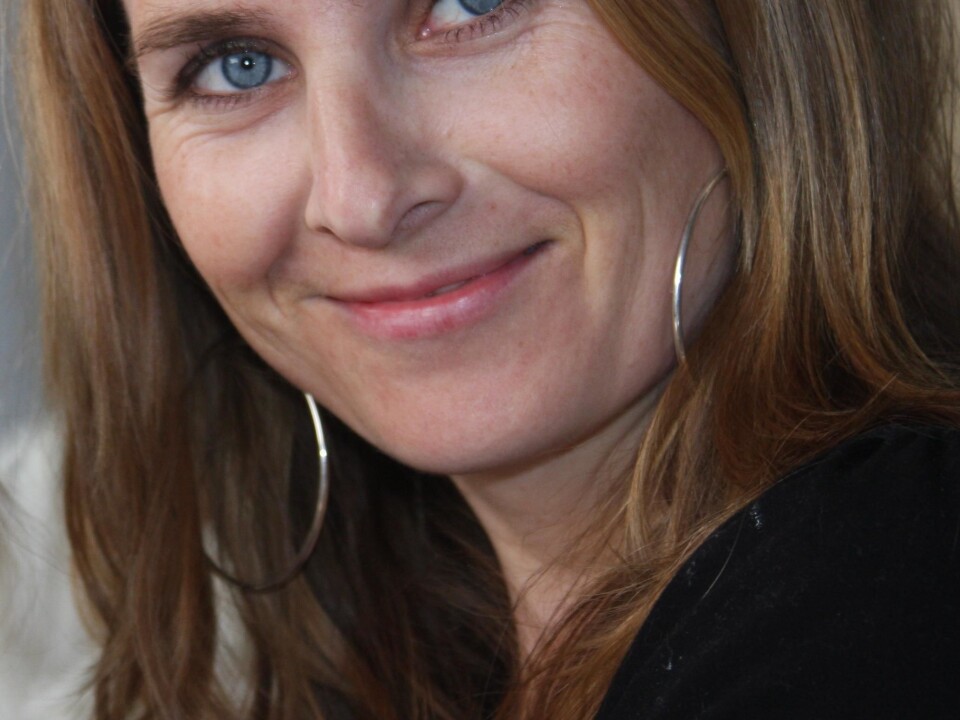
The findings show that both sexes, but women in particular, respond positively to pregnancy and childbirth. However, as early as six months later, the strain is beginning to show, and two years down the line their happiness is back at the same level as before the pregnancy.
“We tend to forget that having a child demands a high degree of co-operation and stamina. It entails strain, staying awake at night and a reduced quality of sleep. We have to let go of some of our own wants and desires,” Dyrdal points out.
In short, becoming a parent is hard work.
The importance of a partner
More detailed analysis of the responses revealed the importance of having a partner for a feeling of happiness.
“For most people, having a child also means having a partner. And we know there is a positive correlation between having a partner and well-being,” says the researcher.
“Having children is demanding, but the negative effect from this is cancelled out by the positive effect of having a partner.”
Accordingly, when the researchers looked at the effect of having children without taking the positive 'partner effect' into account, there was no long-term happiness effect for parents from having children. When looking at the positive effect of being in a relationship itself, it turned out that having children actually reduced parents' long-term well-being.
Do not regret having children
But when parents reported reduced well-being, it does not mean that they regretted having children.
“There are many factors that can impact on life satisfaction after having children – for instance more stress, not having enough time, more worries, less flexibility and more rigid structure in everyday life, says Dyrdal. "If we had asked differently, for instance about the meaning of life and what parents appreciate about parenthood, the responses would have been more nuanced.”
Couples respond in a similar way
Certain personality traits can also ease the impact of parenthood. Becoming a parent is easier if you are open and flexible; being anxious or slightly neurotic makes it harder. However, these differences in personality are not major factors for well-being.
“The mother's and father's response to becoming a parent is more influenced by the event itself than their personality," she says. "The study shows that couples tend to respond in a similar way to being parents. They are sharing something unique, and this affects their feeling of happiness when having children.”
-----------------------------
Read a Norwegian version of this article at forskning.no







